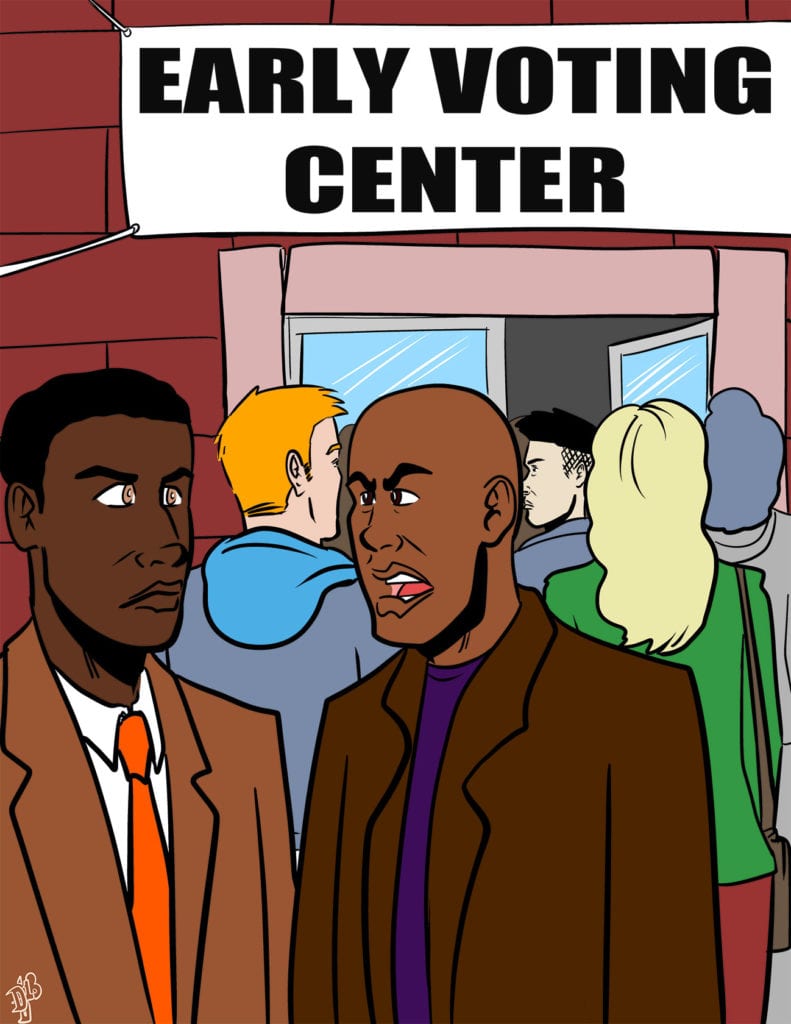
Every political election involves a potential transfer of power. As political pundits say, “Politics ain’t tiddlywinks!” With so much at stake it is disturbing to see a decline in the black male voter turnout.
A democracy allows for the peaceful transfer of power but America’s Founding Fathers never intended for everyone’s opinion to be included in the process. In an ideal democratic republic the electoral process is sacrosanct. However, from the days of the nation’s founding the plebiscite has been restricted.
Half of the nation’s citizens are women, but they were prevented from voting until 1920. Also, poor white men with no property were once barred from the ballot box. As expected slaves had no vote, but after the 13th Amendment made slavery illegal in 1865 the nation has been embroiled in controversies to determine the status of the descendants of slaves.
The first step was the ratification of the 14th Amendment in 1868 that made all freed slaves citizens. That was followed by the 15th Amendment in 1870 that technically gave freed slaves the right to vote. The problem was that the rural population in much of the South was more than 60 percent black, and it was greater than 30 percent black in urban areas according to the 1860 census. Compliance by whites would lead to the loss of their political leverage.
The so-called Reconstruction era following the emancipation amendment did not last for very long. Jim Crow policies throughout the South emerged primarily to curtail the development of black political power. Poll taxes, bogus voter registration tests and then rank violence kept most blacks away from the polls. Government remedial efforts were unsuccessful.
Finally, President Dwight D. Eisenhower created the Civil Rights Act of 1957 which established the Civil Rights Division of the U.S. Justice Department. This was the first federal voting rights act. Justice Department officials broke the back of solid resistance to black voting rights in the South. It also paved the way for the Civil Rights Act of 1964 that outlawed racial discrimination in education, employment and places of public accommodation.
The impact of the black vote became impressive in the 1964 election when blacks who might then still vote for Republicans left that party in droves. Barry Goldwater, who opposed the Civil Rights Act, got only 6 percent of the black vote while Lyndon Johnson got 94 percent. Since then the black vote has been a major power factor in the Democratic Party.
With the emergence of Barack Obama, the turnout of black voters has been outstanding. However, a report from the Pew Charitable Trusts indicates that the percentage of black male voters declined in 2016 from four years earlier. There is evidence that Russians tampering with election results ran a social media campaign to discourage blacks from voting.
The Voting Rights Act of 1965 cleared access to the polls for a while, but conservatives have never surrendered their campaign to disenfranchise blacks. Now they impose unrealistic voter ID requirements, restrict early voting, and disfigure congressional districts with bizarre gerrymandered boundaries.
It is no longer life threatening for blacks to go and vote as it was in earlier decades. Black males must “man-up” and vote in every election regardless of the inconvenience.






